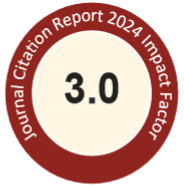Abstract
Corydalis saxicola Bunting, also named Yanhuanglian in China, is widely used in folk prescriptions to treat hepatitis, hepatocirrhosis and hepatic cancer. Its active components consists mainly of alkaloids, which have poor solubility in water. The previous study showed that the absolute bioavailabilities (BA) of the alkaloids were only about 10% after oral administration to rats, compared to intravenous administration. In this paper, the solid dispersion (SD) method was used to improve the BAs of dehydrocavidine (YHL-1), coptisine (YHL-2), and dehydroapocavidine (YHL-3), the main alkaloids of the extract of Corydalis saxicola Bunting, by improving their solubility. The results showed that using PEG 4000 as a carrier at an amount equivalent to 7 folds of the extract could significantly improve the solubility of the compounds in water, pH 1.2 HCl and pH 7.2 PBS. DSC and X-ray detection indicated that the drug might be in a dissolved or amorphous state in SD, which was different from that in the physical mixture. The formulation was further studied in terms of BA enhancement by cumulative urinary excretion after oral administration to rats. A new method using high performance liquid chromatography (HPLC) coupled to a diode-array detector (DAD) was established. The results showed that the relative BAs (RE BAs) of YHL-1, YHL-2 and YHL-3 were all significantly improved by about 1 fold after oral administration of SD solution, compared to the extract suspension (p < 0.05).
Recommended Citation
Liu, Q.-F.; Yun, S.; Song, Z.-M.; Luo, G.-A.; and Wang, Y.-M.
(2010)
"Quality evaluation and relative bioavailability investigation on three alkaloids of Corydalis saxicola bunting extract in solid dispersion,"
Journal of Food and Drug Analysis: Vol. 18
:
Iss.
6
, Article 8.
Available at: https://doi.org/10.38212/2224-6614.2248

